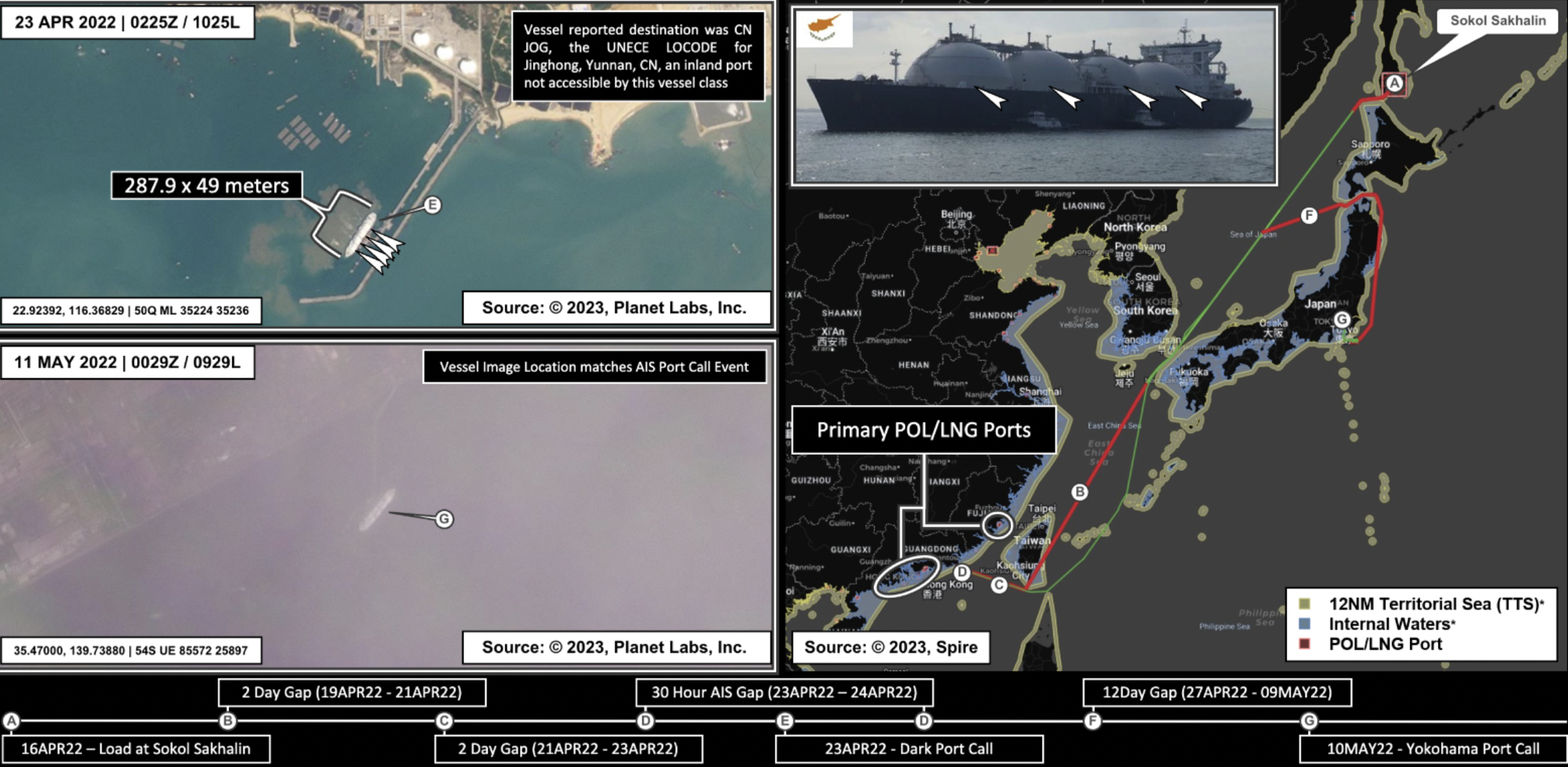ST. LOUIS — The data analytics firm Royce Geo used imagery from Planet Labs and vessel-tracking information from Spire satellites to uncover illicit oil trading by Russian tankers around the globe.
The analysis published May 16 also found that more tankers coming from Russian ports are now heading towards Chinese export destinations.
Using artificial intelligence techniques to extract ships and classify tankers within satellite images, the company was able to explain how Russia continues to export oil and natural gas products while most nations have imposed sanctions and price caps.
Another analytics and AI company, Windward, combined vessel tracking data with Planet imagery to report on the alleged laundering of Ukrainian grain by Russian dark vessels.
These are examples of how Planet works with partners to “get value out of our data,” Kevin Weil, Planet’s president of product and business, told SpaceNews.
“We have hundreds of satellites in space. We image the whole planet every day. So we have this history of the world that is basically recording anything that has changed over the past almost seven years,” Weil said.
Satellites owned by private companies like Planet have played an unexpectedly important role in the war in Ukraine, demonstrating the capabilities of commercial satellites to deliver crucial intelligence.
The industry, however, worries that much of the value of the data collected by satellites and archived daily remains untapped.
“I think Planet’s is the most underutilized dataset in the world,” Weil said.
Planet is working with Microsoft to create a so-called PlanetGPT using AI to make satellite data more accessible by indexing it, and making it searchable and conversational, Weil said.
“One of the reasons I’m excited about that is it’s for the first time we’re able to not just build individual models to extract what’s happening in the world, but potentially build a more general model that we’ll be able to query with natural language and more quickly get answers across a variety of scenarios,” he said.
Becoming an information company
Planet last quarter reported significant growth in revenue. Going forward, the company is reshaping itself to be more than an Earth observation firm and become a data and information provider, said Robert Cardillo, chairman of the board of Planet Federal.
Cardillo, a former director of the National Geospatial Intelligence Agency (NGA), oversees the government arm of Planet Labs. His message to customers is “tell us what insights you want and let us figure out how to provide it.”
Planet last year won a $146 million contract from the National Reconnaissance Office to supply electro-optical imagery. The company is working to expand its reach in the government market, Cardillo said. Planet has signed a number of cooperative research and development agreements, known as CRADAs, with government agencies to explore ways to extract insights from Planet’s archive.
NGA and other defense agencies are gaining more confidence in commercial data but there are still “structural inhibitors” that slow down the adoption of commercial solutions, Cardillo said.
Some agencies still don’t trust commercial data but “I’m really optimistic,” he said. “This is an interactive system. Commercial industry sometimes pushes, and sometimes the government is in the lead because of their capabilities, but I’m just really pleased with the interactions.”
Discussions about what the future holds for the geospatial intelligence industry will take place this week at the GEOINT 2023 symposium held in downtown St. Louis, not far from where NGA is building a new campus known as NGA West.
NGA commercial Initatives
James Griffith, director of commercial operations at NGA, said the agency is looking for better ways to take advantage of private sector innovation.
The agency, for example, is using data and analytics services from commercial providers under the Economic Indicator Monitoring, or EIM program, where companies compete for task orders to monitor global activity and deliver insights on economic trends. The first round of contracts was worth $29 million and the next will grow to $60 million thanks to a congressional add-on.
“In five to 10 years, data is not going to be our problem. There is so much data. What I’m hoping to see and we’re trying to encourage is the development of more analytics services, things that make sense of that data for users who are not specialists,” Griffith said in April at Planet’s users conference in Washington, D.C.
As part of NGA’s intelligence support to the Defense Department, he said, “we’re required to monitor thousands of airfields every single month. Wouldn’t it be great if we had a service that did that monitoring for us that was reliable, and as part of the service, they provide an alert that something’s changed?”
“Those are the kinds of services that I think would be of real value to the community,” Griffith said, “and the data already exists.”
Cardillo, an early proponent of the EIM program when he ran NGA, agreed that there should be better ways for the government to tap commercial capabilities. Once an agency decides what information it wants, he said, “we get the algorithm tuned and, working with the archive, we can provide weekly or daily reports.”
Planet teamed with Microsoft to assess building damage in Ukraine caused by the war. Weil said the key was to train the models to identify different objects like schools, hospitals and military installations.
“It took us a month or so to do the first analysis in Ukraine,” said Weil. “And then when the earthquake happened in Turkey, it took us two days because we had refined the models and we had the processes in place,” he said. “This is the kind of thing that EIM is going after. It’s a training ground and then you automate and iterate and move much faster in the future.”
To help unlock more applications and uses of archival data, Planet launched a startup program offering discounted access to Planet data for research, product development and prototyping. Weil said the company wants to democratize access to satellite data and reduce technical barriers.
